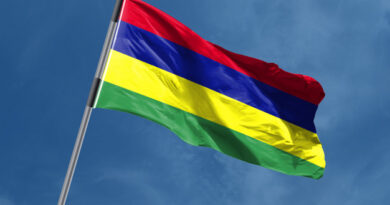Commemoration of the Victory over Gaddafi 2020-End of the 40-year long Gaddafi regime
On 1 September 1969, after leading a coalition of Libyan young military officers against King Idris I, Muammar Gaddafi became the de facto leader of Libya. After the King fled the Country, the RCC, led by Qaddafi, dismantled the monarchy and the old constitution and founded the Libyan Arab Republic with the motto: “Freedom, Socialism and Unity.“
Originally Gaddafi was politically committed to Arab and Arab nationalism, but later governed his own Third International Theory. It was the style of government Muammar Kadhafi proposed in the early 1970s, which officially formed his regime, the Grand Socialist Libyan Arab Jamahiriya (GSJ). It was partly based on Islamic socialism, Arab nationalism, African nationalism and partly on direct democracy principles.
Every March 19 is a national holiday in Libya named Gaddafi’s Victory Commemoration. This holiday commemorates the fall of Gaddafi’s 40-year-long rule after NATO air strikes helped destroy Gaddafi’s forces in 2011, during Libya’s raging, bloody war.
Gaddafi, a very controversial figure, has controlled Libya’s politics for four decades and has been subject to a widespread personality culte. He was given several prizes and lauded his anti-imperialist stance, his support for Arab–and Africa–unity, and his government’s significant progress on the quality of life of the Libyan people. In comparison, many Libyans were firmly opposed to his economic and social reforms and were posthumously charged with sexual harassment. Many denounced him as a dictator who abused human rights and funded global terrorism through his oppressive government.
During the 1970s and 1980s, Libya became increasingly marginalized on the international stage as its failed border disputes with Egypt and Chad, funding for foreign dissidents, and claims that it was responsible for the bombings at Lockerbie in Scotland. Protests against systemic corruption and unemployment have erupted in eastern Libya in the middle of the 2011 Arab Spring. The situation plunged into civil war, during which NATO intervened militarily on the side of the National Transitional Council anti-Gaddafist (NTC).
The First Libyan Civil War was an armed conflict in 2011 in Libya’s North African region, which fought between forces loyal to Colonel Muammar Gaddafi and those trying to overthrow his government. The war was followed by protests in Zawiya on August 8, 2009 and eventually triggered by protests in Benghazi beginning on Tuesday, February 15, 2011, which led to clashes with security forces fired on the crowd. The protests erupted into a uprising spread throughout the region, with forces opposing Gaddafi setting up an interim governing body, the National Transitional Council.
On 26 February, the United Nations Security Council passed an initial resolution freezing Gaddafi’s properties and his inner circle and banning their movement, and referred the matter to the ICC for investigation. Gaddafi’s forces mobilized in early March, advanced eastward and re-took several coastal cities before entering Benghazi. Another UN resolution allowed member states to create and implement a no-fly zone over Libya and use “all appropriate steps” to avoid attacks on civilians, which escalated into a NATO forces bombing campaign against Libya’s military bases and civilian infrastructure.
In August, opposition forces launched an offensive on the government-held coast of Libya with the support of a broad-based NATO bombing campaign, capturing land lost months before and eventually taking Tripoli’s capital city as Qaddafi evaded capture . On 16 September 2011, the UN recognised the National Transitional Council as Libya’s legal representative, replacing Gaddafi’s administration. Muammar Gaddafi evaded capture until October 20, 2011, when he was arrested and killed in Sirte. On October 23, 2011, the National Transitional Council “declared Libya’s liberation” and official war end.
Nonetheless, nine years after the military intervention directed by the North Atlantic Treaty Organization (NATO) to topple Colonel Muammar al-Gaddafi, Libya remains locked in a vortex of conflict involving armed groups, religious, ethnic groups and international interference, leading the country into complete turmoil.




